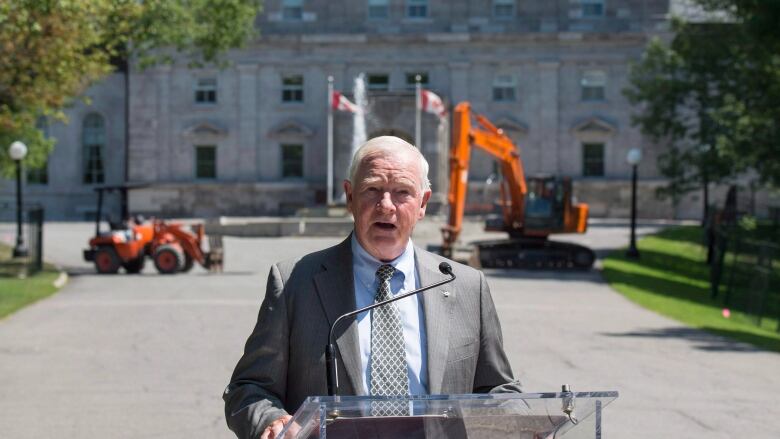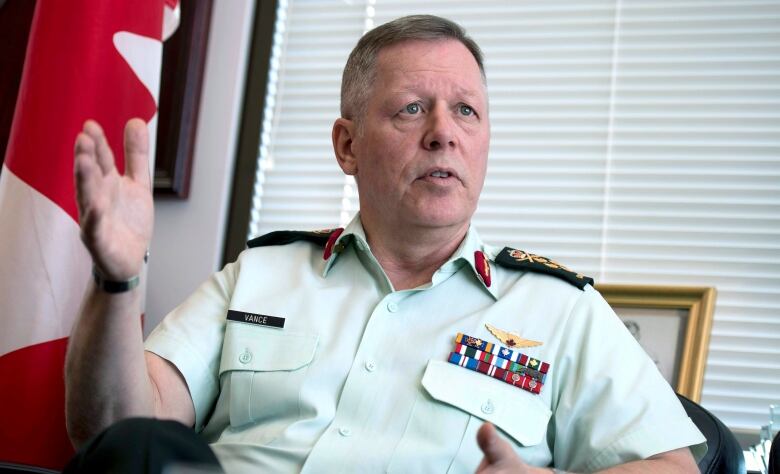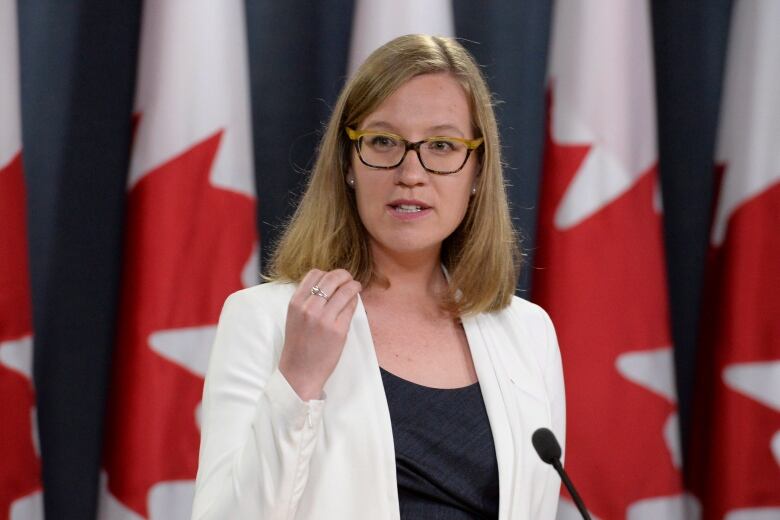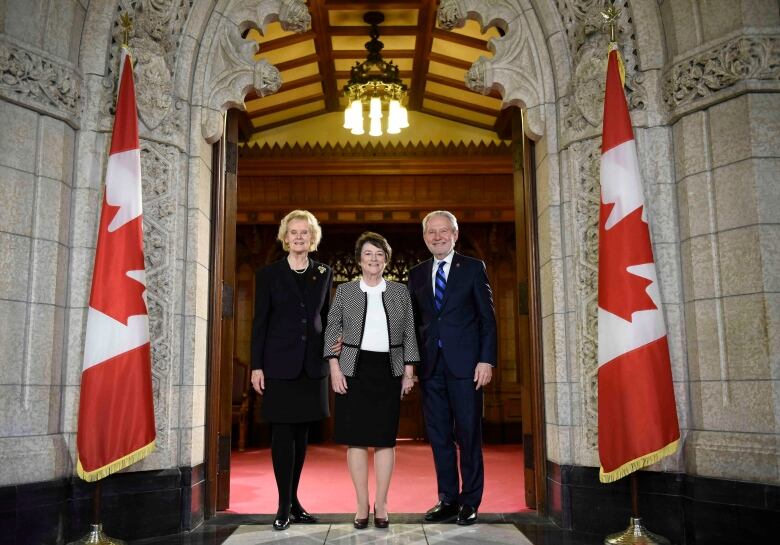Justin Trudeau's neighbour says goodbye

As Canada prepares to ring in the big 150, GovernorGeneral David Johnston says there's room to discuss Quebec's role in Canada and its signature on the Constitution despite the prime minister'scategorical refusal to reopen the debate.
"Canada is an experiment that is evolving continuously and continuously in the face of both domestic and external events," Johnston said at Rideau Hall during an interview with Chris Hall, host of CBC's The House.
Prime Minister Justin Trudeau shut down Quebec Premier Philippe Couillard's proposal to get Quebec's signature, saying his government would not reopen the 1982 Constitution. The governor general was more open.
"I would say that those are matters appropriate for continual debate," Johnston said."The wonderful thing about this country is that we don't shy away from debate and discussion. I think we are prepared to put our challenges as well as our opportunities on the table."
Johnston said that ability for frank discussion and compromise is part of Canada's political culture going back to Confederation 150 years ago.
"Our history has shown that we have found ways to achieve a degree of common ground. We are a nation that avoids putting ourselves in a position where we get at extremes and warring with one another, but constantly finding accomodation."
Johnston is spending his last Canada Day as the Queen's representative in Canada. His term will expire in September and Trudeau will appoint his successor.
All planes on the table

The chief of the defence staff is keeping the F-35 on the table as suitable option to bolster the air force's fleet, despite the Liberals' campaign promise to back away from Canada's earlier commitments to the controversial fighter jet.
"The most critical thing for me as I look to the long term health and capacity of the institution is that very important commitment to an open competition with no barriers to that competition for those 88," Gen. Jonathan Vance.
The Liberal government's new defence plan promises to buy 88 new fighter jets, up from the 65 pledged by the previous Conservative government.
But it's not clear what type of planes they'd be, given the Liberals'criticism of the F-35 and the ongoing trade spat between Canada's Bombardier andBoeing, the American manufacturer of the Super Hornet.
The governmenthad planned to buy the Super Hornets as an interim measure, but the defence policy makes no reference to that and simply says the existing squadrons will be replaced through an open competition.
When asked if that open competition would include the publicly-maligned F-35, Vance said the competition would be open to all planes that fit the military's specifications.
"It includes all of the planes. It includes the Super Hornet, the F-35, all of the planes," Vance said."That's a good thing so we can actually see what planes are going to provide us the operational advantage that we need as we defend Canada and operate globally."
Canada prepares for potential election hacking

"There are a range of actors that are looking to destabilize our undermine public confidence in our elections,"Gouldtold The House.
But added, "when it comes to our elections itself, because we still use paper-and-ballot, it's unlikely that the actual election results would be compromised."
Gouldwouldn't say whether the government is concerned about threats specifically from Russia, which has been accused of attempting to meddle in theBrexitvote as well as the recent American and French elections.
She said political parties, politicians and citizens need to be made aware of the threat ofmisinformationcampaigns and protect their computer system as well as apply a critical eye to sources of information.
She said the level of risk for provincial and territorial elections is considered low.
Senate flexes its muscles

Parliament is on the cusp of breaking for the summer, but not before some good old-fashionedprocedural wrangling from the Senate.
Speaker of the Senate, George Furey, disallowed a motion from independent Senator Andre Pratte to carve out the $35-billion infrastructure bank portion of the budget bill into a separate bill that senators can study at greater length.
Furey agreed with the government's representative in the Senate, Peter Harder, that the motion was out of order.
However, his ruling was challenged by independent Senator Diane Griffin and senators eventually voted 38-33 to overrule Furey.
"Things are jammed together that really could and should be separated or we should certainly have that discussion and some sober second thought."
This week's brouhaha in the Senate is a sign of what's to come and could be the defining fault line on Parliament Hill on many issues,said In House panelist John Geddes, Ottawa bureau chief for Macleans.
"Prime Minister Trudeau has changed the Senate. He started it when he was in Opposition by cutting loose Liberal Senators. He's continued it byappointing independent Senators so now he's kind of reaping what he sowed which is a much more independent Senate," he said.
The Globe and Mail's Laura Stone said someone in the Senate described it to her as a "circus-like, cosmic experience."
"Prime Minister Trudeau has kind of created a monster here," she said. "There's clearly a lack of discipline there, even amongst themselves."












_(720p).jpg)


 OFFICIAL HD MUSIC VIDEO.jpg)
.jpg)



























































































